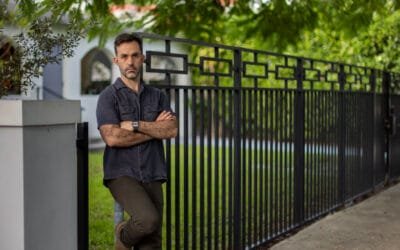There is a failure to focus on fundamentals among both sides in the debate over Covid policy. On the one side are the “lockdowners.” These are the many politicians and medical advisors such as Dr. Anthony Fauci who see health as an overriding end that trumps all other considerations, including the rights of the individual. Thus, nearly any form of imaginable lockdown and restriction on private life has been justified, ranging from banning solo surfboarders on California beaches to suppressing religious, social, school, and entertainment gatherings, to mandating mask wearing, to offering year-long moratoriums on rent payments and evictions.
But taking the opposite side on some of these issues is equally unjust if it also involves violating individual rights, in particular the right to property and freedom of association. Consider the seemingly divergent policy goals of the governors of two of our most populous states, New York and Florida, with regard to the latest Covid issue: “vaccine passports.”
A vaccine passport is a written or electronic document that proves one has been vaccinated against Covid. As more and more Americans — and people around the world — are getting vaccinated, proof of vaccination is beginning to be used in order to facilitate social gatherings, such as attendance at concerts and sporting events.
The two state governors have taken apparently opposite approaches on this issue. New York Governor Andrew Cuomo has sponsored the development of a Covid passport with the support of operators of large-capacity public venues such as Madison Square Garden. The use of the passport (or similar documentation) appears to be mandatory for these large gatherings that are otherwise banned by current capacity limits.
On the other hand, Florida Governor Ron DeSantis has issued an executive order (to be followed up with legislation) that bans the use of vaccine passports by anyone, whether government or private businesses. Lumping government and private property owners together, he says, “It’s completely unacceptable for either the government or the private sector to impose upon you the requirement that you show proof of vaccine to just simply participate in normal society.” [emphasis mine]
This debate over vaccine passports is similar to the earlier, and ongoing, debate over mask-wearing. Both sides in the mask debate center their arguments on whether the masks are effective in preventing Covid. But instead of leaving that decision up to each person to make using their own individual assessment of costs and benefits, government officials insist on making the decision for all of us.
On one side, a government official says that — by law — we must use masks or vaccine passports. But on the other side, a government official is saying that — by law — we cannot require masks or vaccine passports on our own private property in our voluntary interactions with others.
Both sides in this debate violate our individual rights by taking away our ability to make these decisions for ourselves. A rights-respecting approach to Covid recognizes our fundamental ownership over our own bodies and property. This includes freedom of association, where each of us can set the terms upon which others may use one’s property. Just as you can say “no smoking allowed” — or “smoking is permitted” — for guests in your own home, a business owner should be able to establish their own policy for patrons regarding mask-wearing, Covid passports, and other Covid issues.
Instead of protecting and upholding this individual right, the quest to use government power to back one’s position on these issues has created a knock-down, drag-out political brawl where each side is fighting for the ability to use the policing power of the government to enforce their will on everyone.
The road not traveled with Covid policy is simply to respect and empower the rights of individuals to make their own choices. Each person and business owner morally has the right to decide for him or herself what is best. Government should confine its role to respecting and enforcing that right. No one’s rights are violated if a private venue owner, for example, mandates presentation of a Covid passport as a condition of entry. It is the venue owner’s property right to make such a decision. When Florida’s governor bans such a choice, he is violating that property owner’s right, just as much as New York’s governor violates a property owner’s right by mandating the use of such passports.
As the philosopher Ayn Rand says, “The moral is the practical.” This means that an approach that respects individual rights has many practical advantages. One advantage of a rights-respecting approach to Covid policy is that it produces, in essence, millions of individual experiments. Each person, by deciding for him or herself what works best for them, provides evidence for the wisdom or foolishness of a particular approach. This facilitates the rapid discovery of the most effective health practices far faster than any coercive governmental “one size fits all” policy can do.
Another advantage that applies particularly to this issue of Covid passports is that the benefits and risks are fully internalized. A venue owner fully bears all of the economic consequences of establishing a particular policy. Because of this, the profit motive will motivate the venue owner to seek out an arrangement that best satisfies the most customers. If most people want the protection of passports, there will be greater profits in mandating them. On the other hand, if most people find the passports objectionable, for whatever reason, it is in the property owner’s interest not to require them. At all times, every patron is free to “vote” on that policy by choosing whether to patronize that venue or not. The relationship between the property owner and each of the patrons is entirely voluntary.
While Florida’s governor seeks to position himself as an upholder of liberty in the debate over Covid policy, on this issue the differences between him and New York’s governor are superficial. Unfortunately, on a fundamental level, both governors are pursuing policies that violate our individual rights. We must demand that all government officials respect our right to make our own individual health decisions regarding Covid. Government should neither mandate nor ban vaccine passports or the other health decisions that individuals morally and rightfully should make for themselves.
It is time to travel down the road not taken.




